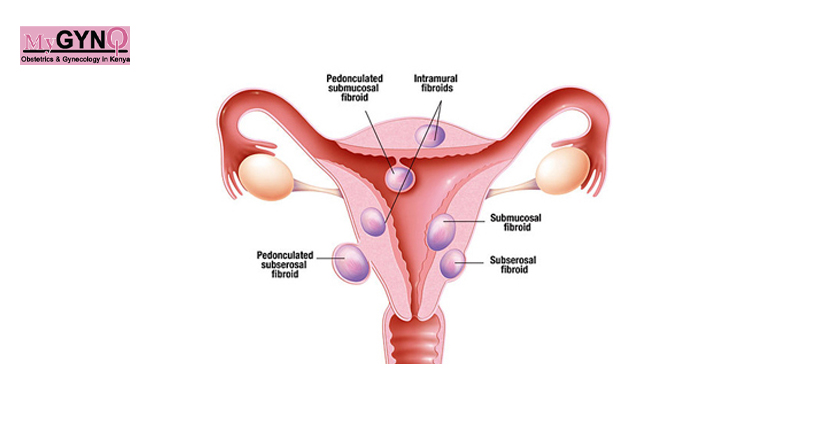- Clinic:
- 0733 945 717
- 0739 434 212

Coping with labor and deliver
August 28, 2024
Do-It-Yourself (DIY) Abortions may be on the Rise
September 2, 2024Do fibroids interfere with conception?

Dear doctor,
I have one child, but I have been unable to conceive for 2years. I was recently diagnosed with fibroids and advised this is the cause for my failure to conceive. What treatments should I undergo? Worried Lady.
You shouldn’t be too worried just because you have been diagnosed with fibroids. Fibroids are fairly common, occurring in about 1 in every 4 women in our population. They are innocent growths found on the womb (uterus). Many women with fibroids have no symptoms, but others may experience heavy periods or pressure symptoms in the pelvis especially if the fibroids are very large. Fibroids may remain undiagnosed till an ultrasound scan of the pelvis gets done for other reasons.
The fact that you have fibroids does not necessarily mean they are the cause for the delay in conception. The majority of women with fibroids have normal reproductive potential, and will get pregnant shortly after they start trying. Due to the weak direct link between fibroids and delay in conception, other common causes of failure to conceive must be excluded first before attributing the delay in conception to the presence of the fibroids. Tests for sperms, ovulation and assessment of the fallopian tubes need to be done, as abnormal results may easily explain the delay in conception.
If no other cause of delay in conception is found in the presence of symptomatic fibroids, the possibility of a likely negative effect of the fibroids should be considered. A careful assessment of the sizes of the fibroids, their numbers and location within the uterus must be done. Very large fibroids, or ones that distort the cavity of the uterus may create a hostile environment for conception to take place. Treatment of such fibroids is likely to improve the potential to conceive.
There are many treatment modalities for fibroids. Each treatment option must be tailored to the reproductive wishes of the women concerned. Surgery is the most applicable treatment option in the setting of sparing and improving subsequent reproductive potential. The surgery involves removal of the fibroids (called myomectomy). This is best done by key-hole surgery, but some fibroids may only be safely removed with open surgery. Newer modalities of treatments are available, but some are still being evaluated in relation to maintaining subsequent fertility potential.
Make sure you get a comprehensive discussion with your gynecologist on the best approach to deal with your fibroids and the delay in conception. It is not unusual that nothing ends up getting done to your fibroids, and efforts may be directed to other potential causes. Any misdirected haste to intervene prior to a comprehensive assessment may end up compromising your fertility potential even further.
Although due date might seem to have magical qualities, it's simply an educated guess about when the baby is most likely to arrive. It's perfectly normal to give birth one to two weeks before — or after — due date.
Take a fertility test today
